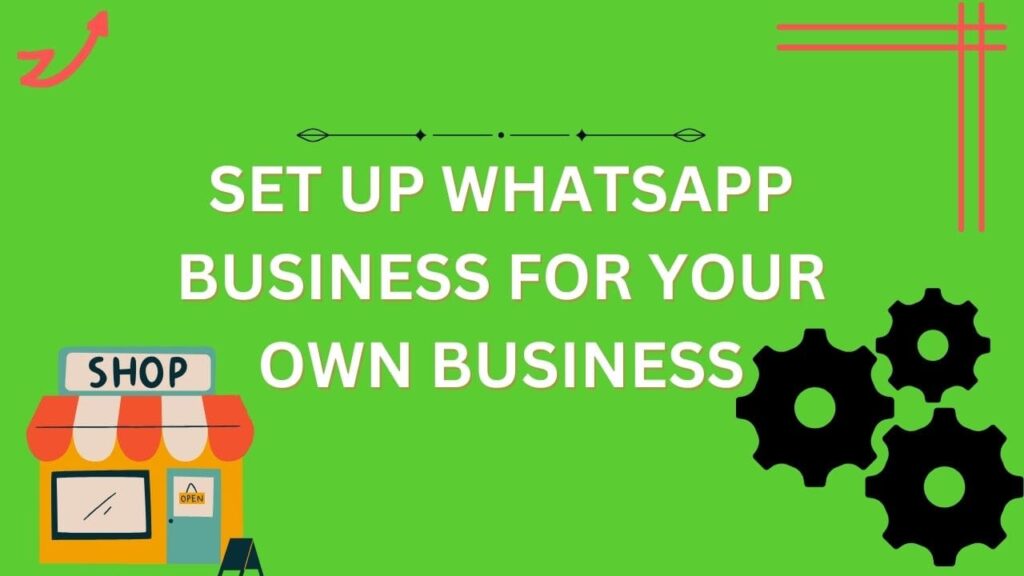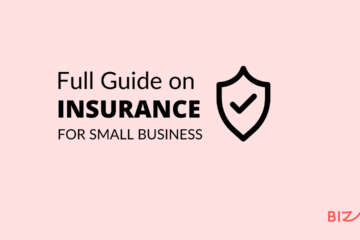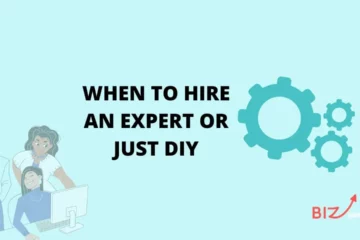Installing and setting up WhatsApp Business is a straightforward process, and I’ll guide you through it step by step. WhatsApp Business is primarily designed for small and medium-sized businesses to interact with customers, so it’s a great tool if you want to use WhatsApp for business purposes.
Here is a brief guide for you! Follow these steps serial-wise to install and start using WhatsApp Business in your business:
1. Prepare Your Device:
➢ Ensure you have an Android smartphone or tablet with an active phone number.
➢ Make sure your device is connected to the internet, preferably through Wi-Fi.
2. Backup Your Chats (Optional):
➢ If you have a personal WhatsApp account with chats that you’d like to keep, you can back up your chats by going to WhatsApp > Settings > Chats > Chat backup. You can choose to backup to Google Drive.
3. Download WhatsApp Business:
➢ Open the Google Play Store on your Android device.
➢ In the search bar at the top, type “WhatsApp Business” and press Enter.
➢ Look for the WhatsApp Business app by WhatsApp Inc.
➢ Tap on it to open the app’s page.
➢ Press the “Install” button.
4. Setting Up WhatsApp Business:
➢ After the app is installed, tap “Open.”
➢ You’ll be prompted to agree to WhatsApp’s Terms of Service and Privacy Policy. Read them if you wish, and then tap “Agree and Continue.”
➢ WhatsApp will request permission to access your contacts, photos, and media. Tap “Allow” to grant these permissions.
➢ Enter the phone number associated with your business. WhatsApp will verify the number by sending a code via SMS or a phone call. Enter the code to verify your number.
5. Restoring Chats (Optional):
➢ If you backed up chats from your personal WhatsApp account and want to restore them, WhatsApp will prompt you during the setup process. Follow the instructions to restore chats.
6. Set Up Your Business Profile:
➢ After verification, you’ll be asked to set up your business profile. This includes adding your business name, logo, description, and contact details. Here’s how to add the necessary details:
a. Business Name:
➢ Enter the official name of your business. This is the name that customers will see when they interact with you on WhatsApp.
b. Business Logo (Profile Picture):
➢ Upload your business logo. It’s recommended to use a clear and recognizable image that represents your brand. (Contact for a free LOGO Check How?)
c. Description:
➢ Write a brief description of your business. This should provide customers with a quick overview of what your business does or offers. Keep it concise and informative.
d. Category:
➢ Choose a category that best describes your business. WhatsApp offers a variety of categories to help customers understand your business type.
e. Business Hours:
➢ Specify your business hours, indicating when customers can expect a response from you. This helps manage customer expectations regarding your availability.
f. Location:
➢ If your business has a physical location, you can add the address here. This is especially useful for businesses with a physical storefront or office.
g. Website and Email (Optional):
➢ You can provide your website URL and email address to make it easier for customers to access more information about your business or contact you via email.
h. Products and Services (Optional):
➢ If applicable, you can list some of your products or services to give customers a better idea of what you offer. This is particularly useful for businesses that want to showcase their offerings.
i. Call to Action (CTA):
➢ WhatsApp Business allows you to set up a CTA button, such as “Message,” “Call Now,” or “Visit Website.” Choose the appropriate CTA that aligns with your business goals.
➢ Review all the details you’ve entered to ensure accuracy and completeness.
7. Start Using WhatsApp Business:
➢ Once your profile is set up, you can start using WhatsApp Business to communicate with customers, send messages, and manage your business account.
That’s it! You’ve successfully installed WhatsApp Business on your Android device and completed your profile as well! Also, as an end note, I want to suggest that do remember to keep your business profile information up to date and use WhatsApp Business responsibly to enhance your customer engagement.
WhatsApp Business vs Traditional WhatsApp App
A brief comparison between WhatsApp business and traditional WhatsApp App. Learn through this table the points of differences which you should care about!
| Aspect | WhatsApp Business | Traditional Business Communication |
| Instant Messaging | Allows real-time text, voice, and video messaging with customers. | Traditional methods may include phone calls, emails, or face-to-face meetings, which may not be as immediate. |
| Cost-Effective | Generally offers lower costs for communication compared to traditional phone systems. | Traditional phone systems may involve higher call charges and equipment costs. |
| Global Reach | Enables businesses to reach a global audience easily, breaking down geographical barriers. | Traditional communication may be limited to local or regional reach. |
| Automation | Supports automated messaging, such as greetings and quick replies, improving efficiency. | Traditional methods may require manual responses, which can be time-consuming. |
| Customer Engagement | Provides tools for sending updates, promotions, and product information directly to customers. | Traditional methods may rely on print advertising, which can be less direct. |
| Business Profile | Allows businesses to create a professional profile, making it easier for customers to identify them. | Traditional businesses may rely on physical storefronts or websites for identity. |
| Customer Analytics | Offers insights into customer engagement, message delivery, and response rates. | Traditional methods may lack such analytics. |
| Multimedia Sharing | Supports the sharing of images, videos, and documents, enhancing product showcasing. | Traditional methods may require physical catalogs or brochures. |
| Customer Feedback | Provides a platform for customers to leave reviews and feedback, helping improve services. | Traditional methods may rely on surveys or comment cards. |
| Appointment Scheduling | Allows businesses to schedule appointments and reminders efficiently. | Traditional scheduling may involve phone calls or in➢person appointments. |
| Security and Privacy | Offers end-to-end encryption for messages, enhancing data security and privacy. | Traditional communication methods may have security vulnerabilities. |
| Integration with CRM Systems | Supports integration with Customer Relationship Management (CRM) tools for better customer management. | Traditional methods may require manual CRM data entry. |
| Broadcast Lists | Allows businesses to send messages to multiple customers simultaneously, reducing effort. | Traditional methods may involve sending messages one by one. |
| Personalization | Enables personalized messages and customer interactions, improving customer experience. | Traditional methods may lack personalization options. |
| Ease of Use | User-friendly interface that is easy for businesses and customers to use. | Traditional methods may require specialized equipment or software. |
WhatsApp Business offers several advantages over traditional business communication, especially in terms of cost-effectiveness, efficiency, global reach, and the ability to provide a personalized customer experience. It’s a valuable tool for modern businesses looking to enhance their customer engagement and communication strategies.
Here we have learned about the benefits of WhatsApp Business over traditional business and have also learned how to install it and complete our profile.
But before we end this blog, do keep the following points about the app as cons based on the current date:
- Limited automation features.
- Single device limitation for registration.
- Phone number dependency for registration.
- Message storage limitations.
- Limited customer support for businesses.
- Messaging rate limits and content restrictions.
- Privacy concerns with handling customer data.
- No desktop app for iOS.
- Varied adoption levels in different regions.
- Increased competition and clutter in customer chats.
- Dependence on a stable internet connection.
- Potential costs for international messaging.
Now we have summed it up with a complete perspective on its pros as well as cons!
In conclusion, WhatsApp Business offers a range of benefits for businesses seeking to enhance customer communication and engagement. Its instant messaging capabilities, cost- effectiveness, and global reach make it a valuable tool in the modern business landscape. However, businesses must also be mindful of its limitations, such as automation constraints and privacy considerations. To make the most of WhatsApp Business, it’s essential to strike a balance between automation and personalization, maintain professionalism, and ensure compliance with WhatsApp’s policies. With proper care and strategy, WhatsApp Business can be a powerful asset for businesses looking to connect with their customers in a more direct and efficient manner.
So good luck with setting it up and contact us in case any assistance is needed!
Can I Use WhatsApp Business for Personal Messaging?
No, WhatsApp Business is intended exclusively for business-related communication. You should use the regular WhatsApp application for personal conversations. Mixing personal and business use on WhatsApp Business is discouraged and may lead to issues with account verification. Although it’s very common to use both of it interchangeably by business owners.
Is WhatsApp Business Free to Use?
WhatsApp Business itself is free to download and use for basic features. However, depending on your mobile data plan, there may be data charges associated with sending messages and media. Also, WhatsApp offers a paid enterprise version called WhatsApp Business API for larger businesses with advanced needs.




